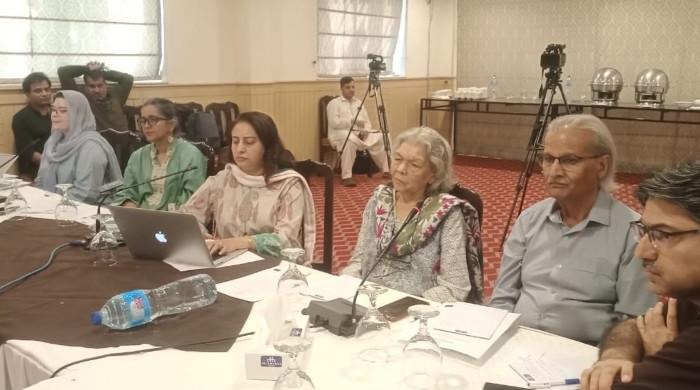HRCP Report Highlights Flaws in Electronic Crimes Act, Calls for Repeal
ISLAMABAD: The Human Rights Commission of Pakistan (HRCP) has released a report that points out significant shortcomings in the Prevention of Electronic Crimes Act (Peca) (Amendment) Act 2025. The commission is advocating for the complete annulment of the law, rejecting any forceful application of its prior versions from 2016 and 2023.
The report, a product of HRCP’s Legislation Watch Cell, was presented by digital rights advocate Farieha Aziz during a discussion in Islamabad on Thursday. This event was part of a project funded by the EU and Pakistan.
Earlier this year, the government introduced controversial revisions to the Prevention of Electronic Crimes Act (Peca), 2016.
The legislation brings in updated definitions, establishes new regulatory and investigative bodies, and imposes stricter punishments for the distribution of what is termed as “false” information.
Director of HRCP, Farah Ziaa, expressed the organization’s deep concern regarding the recent surge in restrictive laws, especially those impacting civic spaces and employed to stifle dissent and freedom of speech.
Aziz, who authored the report, emphasized that the law makes vaguely defined categories of “fake and false information” criminal offenses, punishable by imprisonment for up to three years.
She also noted that it establishes a strong regulatory authority, a complaints council, and a tribunal, all of which are excessively controlled by the executive branch.
Further points of concern in the HRCP report include the reclassification of previously bailable and non-cognizable offenses into non-bailable and cognizable ones, thereby increasing the potential for coercive measures.
In addition, the National Cyber Crime Investigation Agency has taken the place of the Federal Investigation Authority, operating without enough protective measures, according to the report.
Journalists at the HRCP gathering asserted that the government is responsible for safeguarding individual rights. They pushed for the establishment of a unified front to protect freedom of expression and information, while also demanding the decriminalization of free speech.
Former legislator Sana Ullah Baloch, from Balochistan National Party-Mengal (BNP-M), identified freedom of expression as essential for a robust parliament.
HRCP Co-chair MunizaeJahangir highlighted the over-regulated connectivity in Balochistan and Gilgit-Baltistan, as well as the duress under which journalists in these regions, along with Azad Jammu and Kashmir, are working.
Digital rights activists UsamaKhilji and Aftab Alam promoted the creation of a national coalition consisting of civil society members, journalists, and human rights defenders to engage with political parties on the swift increase in restrictions on freedom of expression and opinion.
HRCP council member and former senator Farhatullah Babar supported this proposal and stressed the importance of combating disinformation while protecting the broader right to free speech and information.
In closing the meeting, HRCP Islamabad Vice-Chair Nasreen Azhar suggested that this coalition should also pinpoint all laws that clash with constitutional guarantees of fundamental freedoms.



Comments (0)
No comments yet. Be the first to comment!
Leave a Comment